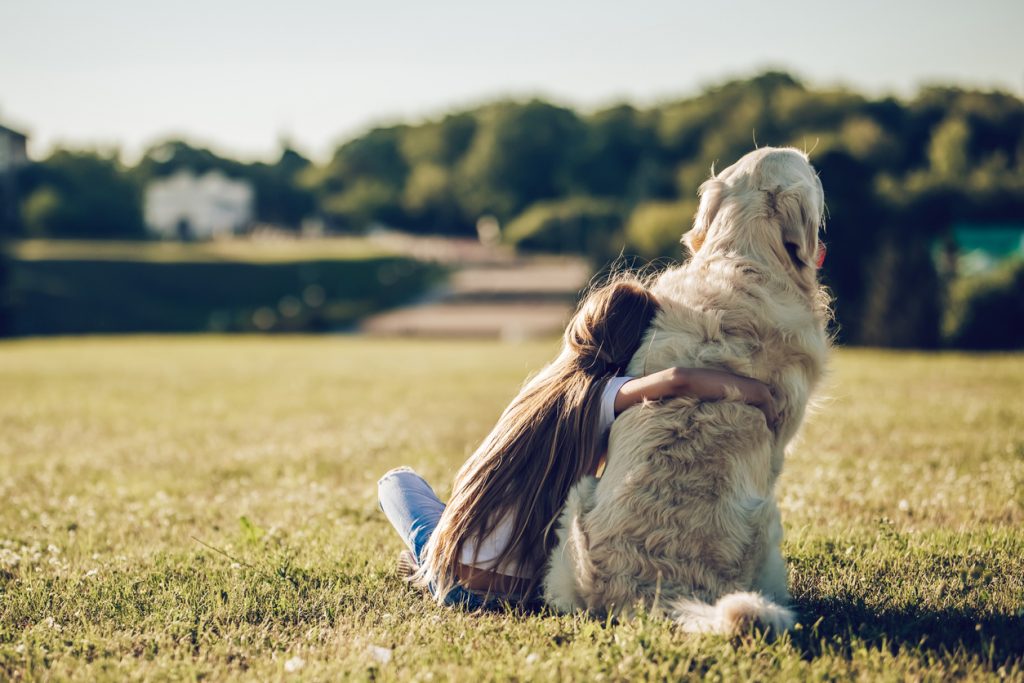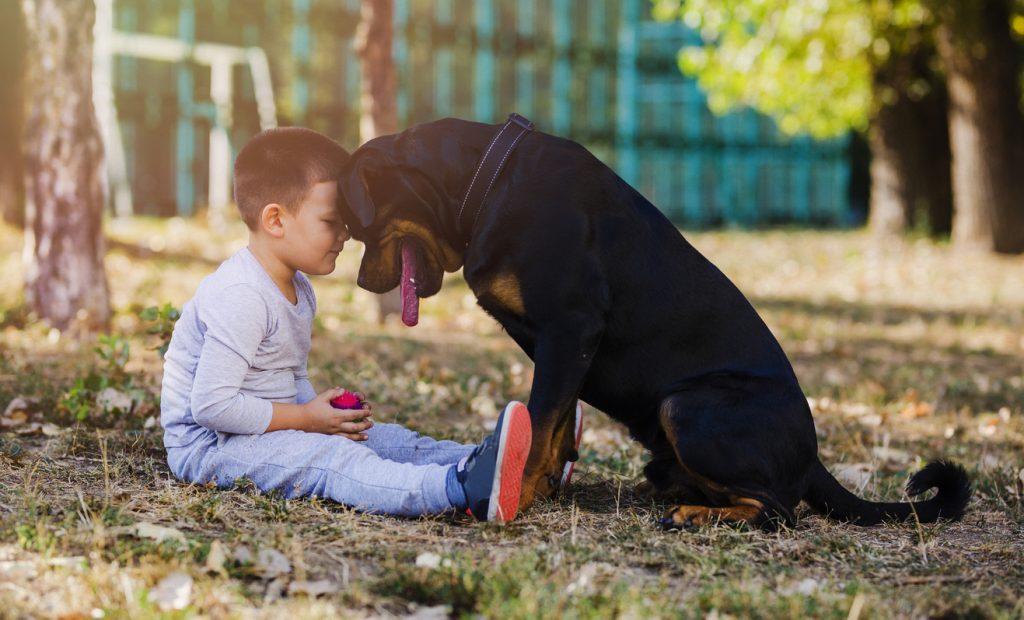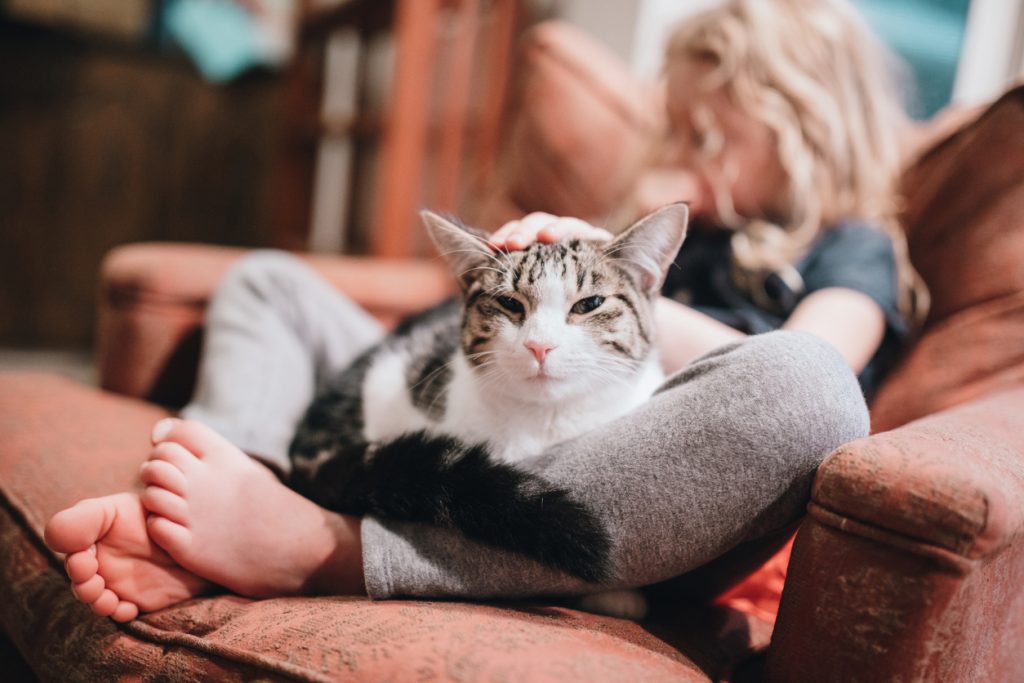The Benefits of Having a Pet

So for how long have your kids been begging for a pet? Like a real pet? Some kids are lucky enough to be born into a family with a beloved creature. However, if you’re on the fence about getting one, there are many benefits of having a pet–a dog, cat, bird, fish or guinea pig–that will have a big impact on your kids.
Here are 6 benefits of having a pet that will positively affect your kids…
1. Responsibility
There are many tasks that come with having a pet such as feeding, exercise, grooming, and play. Including your children in these tasks makes them feel valued, helps them to understand accountability as well as teaches them how to take care of others.
Children as young as two can have a role in caring for the family pet, from filling up the water dish to brushing them. Older children can take on more involved tasks such as cleaning the fish tank or taking Fido for his afternoon walk. To keep your kids engaged, make caring for the family pet fun by building playful rituals into the task, like singing the same song each time dinner is poured into the dog bowl. It’s also important for parents to model caring for the pet. If your kids see you doing these activities, they will follow suit.
It’s also great to try to do some tasks together. The nightly dog walk can become a family affair creating special time where you can connect with your kids while your dog (and the entire family) is getting exercise.
2. Language & Conversation
A family pet provides natural opportunities for children to develop their language and conversation skills. Having a pet around provides opportunities for your toddler or preschooler to have verbal interactions (albeit one-way verbal interaction). It’s not abnormal to catch your little one talking gibberish to your pet or sharing the highs and lows of their day, for example. Exposure to new words can also help with language acquisition, and pets come with a lot of vocabulary such as leash, fetch, doggy, kitty, etc.

3. Empathy
Empathy, compassion, and kindness are important social and emotional skills that are taught and develop over time. One of the benefits of a pet is the ability to cultivate these skills in children through a variety of ways. Pets are very reliant on their owners–when children are exposed to and included in the care of the family pet, they quickly realize how dependent the pet is on them–this dependency helps to develop empathy.
Pets have many non-verbal cues to express their wants and needs. Encouraging your child to be aware of these cues and react to them helps build compassion and awareness of the needs of others. Plus having a pet will nurture and inspire a child’s love for all animals and nature, and teach respect for living things, as a result of the positive connection they feel with their furry or feathered friend.
4. Gross Motor Skills
Most pets require exercise, play, and grooming. These activities can help with gross motor development in kids, from throwing a stick with the dog, to feeding the right amount of food to the fish, to playing with a feather with the cat. Having a pet also often encourages an active lifestyle – something we all want our kids to value.
5. Self-Esteem
Many studies have shown that one of the benefits of having a pet is helping kids develop high self-esteem. Since they offer unconditional love, a pet can comfort, give support, and listen to a child’s troubles without judgment or consequence. Children who live with pets also tend to have less loneliness and enhanced social skills. Self-esteem is also built from completing tasks such as walking the dog or cleaning the birdcage, giving kids a sense of accomplishment and pride.

6. Analytical and Critical Thinking
If you decide to get a pet when your child is a bit older (5+), including them in the process of deciding which pet is best for your family can help develop analytical and critical thinking skills. A lot of research goes into deciding what type of animal will be best for your family. By including your children in the discussion, having them express their opinion, and encouraging them to do research about different pet options you are providing your child with an opportunity to think critically about how a pet will work within their family.
This is a very tangible way for children to develop these skills. It is important to mention that this process can also help parents decided if their kids are ready for a pet because if they are not interested in doing the research and the groundwork, maybe they are not ready just yet.














The article is nice, but needs proper citations instead of remarks like “Many studies”. What studies? Peer-reviewed journals? Where can I go for more in-depth information?